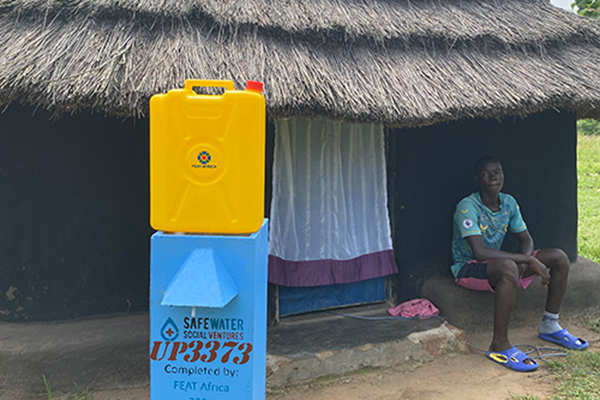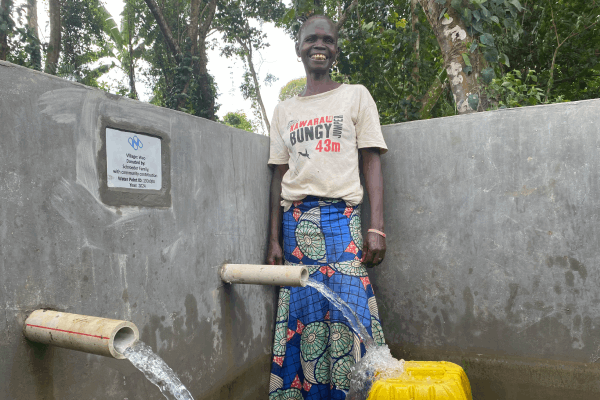Water and Sanitation

In South Sudan, Uganda, and the Democratic Republic of Congo, access to safe water and sanitation remains a critical challenge, especially in rural, refugee, and internally displaced communities. In South Sudan, over 58% of the population lacks access to safe drinking water, and more than 86% are without improved sanitation. In Uganda’s West Nile region, over 53% lack safe water sources, and over 77% lack improved sanitation. Similarly, in Ituri, DR Congo, nearly 38% lack access to safe drinking water, while nearly half live without adequate sanitation. These conditions contribute to persistent outbreaks of preventable, waterborne diseases.
To address this crisis, we are implementing a comprehensive WASH response that includes distributing and installing household water filtration systems, drilling and repairing wells, protecting natural springs, constructing rainwater harvesting systems in schools, conducting water quality testing, and training both water user committees and communities on hygiene, sanitation, and safe water practices.

This initiative is already delivering tangible impact. Households are increasingly using safe water, leading to a decline in waterborne illnesses. Communities now have more reliable access to water, reducing the time and effort spent fetching it. Schools benefit from improved water access, enhancing student health and reducing absenteeism. Public confidence in water safety is growing due to regular quality checks, and trained water user committees are taking charge of maintaining infrastructure. Moreover, WASH education is changing everyday habits, promoting a culture of cleanliness, dignity, and health.
Ultimately, this effort is not just about infrastructure, it’s about restoring health, dignity, and hope for thousands of people. By empowering communities and building sustainable systems, we are working toward a future where everyone can enjoy safe water and sanitation as a basic human right.